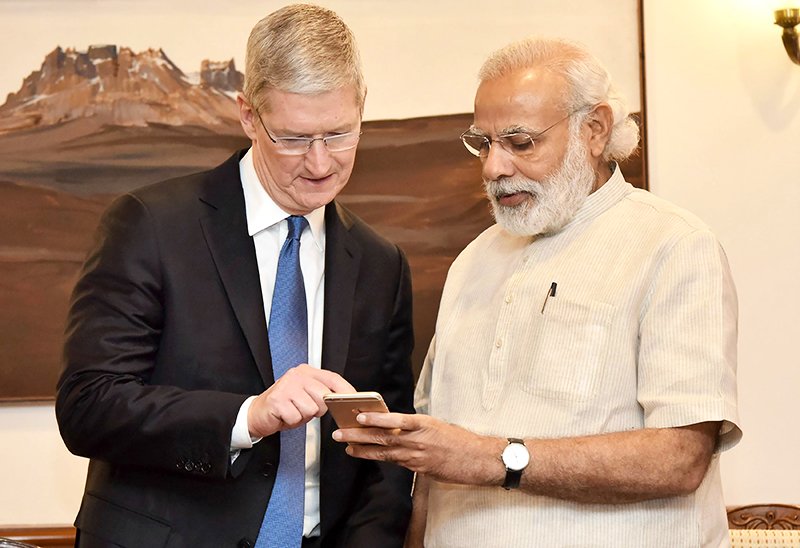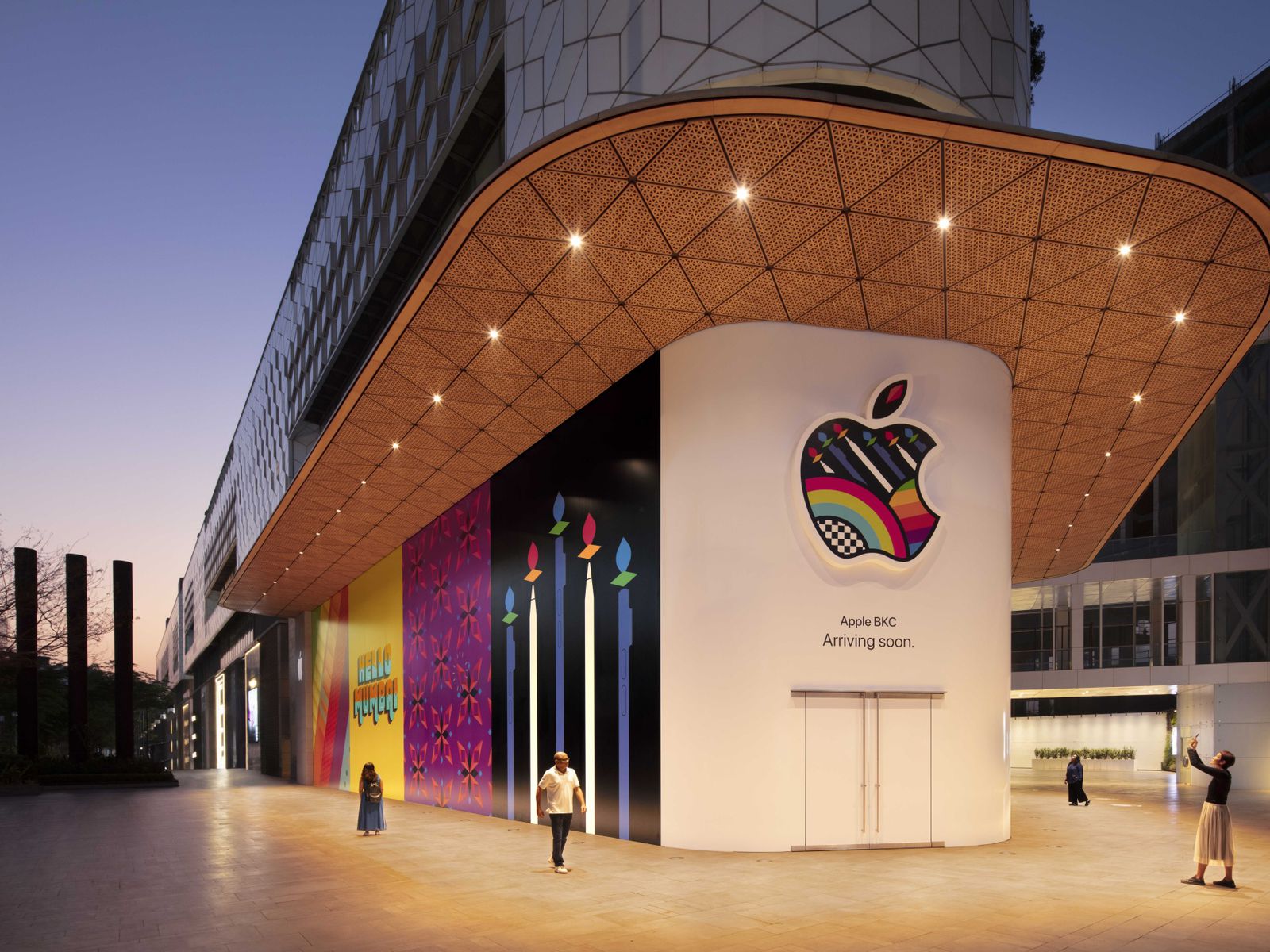Apple Store To Start Its Offline Journey In India: A Moment Of Mixed Reactions From Customers And Retailers!
While the voices of many customers of Apple sound energetic as they will be physically provided to visit the Apple store. On the other hand, concerns revolving around the harm done to retailers exist. Let's see what happens in the journey of Apple in India!

In a move considered symptomatic of the significance the tech giant gives to the world’s fastest-growing smartphone market, Apple is getting ready to build its first retail location in India the following week. Next week, there are speculations that Apple Inc. CEO Tim Cook will visit India to open the company’s first stores there, outlining the company’s plans for the country as a burgeoning market and manufacturing base. Cook is anticipated to oversee the opening of the twin stores in the cities regarded as India’s financial and political capital.
The moment of celebrations.
In India, Apple has announced the opening two new retail locations: Apple BKC in Mumbai on April 18 and Apple Saket in Delhi on April 20.
The barrier for Apple Saket in Delhi was unveiled recently. According to Apple, the distinctive design was inspired by the city’s many gates, each symbolising a new chapter in the city’s colourful history.
Apple BKC announced a special “Mumbai Rising” that would run from opening day through the summer in honour of the first Apple shop opening in India. These workshops will offer hands-on experiences using Apple’s devices and services that honour the local Mumbai community and culture, it claimed, bringing together tourists, regional artists, and creatives.
The journey, which commenced seven years after the CEO’s first visit in 2016, takes place as the most valuable company in the world reaches essential milestones. They include India’s record-breaking iPhone sales and its record-high yearly iPhone exports. Due to tense ties between Beijing and Washington, Apple relies on India to expand its assembly operations outside China.

There are speculations that Apple has requested that the company head Mr Cook meets with our honourable PM Mr Narendra Modi amidst the openings of the two stores. This attempt is suggested because the current government has made significant efforts to promote electronic manufacturing in India and provided incentives worth billions of dollars to entice Apple’s manufacturing partners. They are Foxconn Technology Group and Pegatron Corporation.
During Apple earnings calls, Apple head Mr Cook highlighted our country’s significance as a great market and production hub. Mr Cook stated that Apple Indian lands “reached a quarterly sales record and increased powerful double digits yearly. Cook noted during the call that India is an exciting market for us and a key area of focus. He has high hopes for India.
The locations where Apple will mark its physical presence on the Indian lands.
Apple had plans to establish the first Apple shop in Indian lands within a posh mall in vibrant Mumbai’s Bandra Kurla Complex(BKC). After a couple of days, the company plans to open its doors to the national capital New Delhi, located in an upscale mall in the Saket area. The barriers around that business were just removed. These pair of regions were under work for a while because of India’s stringent regulations. These strict rules prohibit any international business from operating own-brand stores till the point they earn from a sizable %age of their merchandise sold domestically. However, there is no response from Apple to email requesting comment on Cook’s visit.

In 2020, the firm marked its online presence in Indian lands. Our country is the second-largest smartphone market in the world and one of the fastest-growing. Still, the country, which has 1.4 billion-person, has affordability as one of the most important factors in buying decisions. So, the company’s comparatively high sticker prices are a hurdle.
India Apple shops are unsettling retailers.
While every coin has two sides, similar is in the case of Apple’s physical entry in India, mainstream stores in India are concerned that the debut of new products in places where the US smartphone giant establishes physical stores would result in a steep 50–60% decline in the number of the consumers who visit.
Retailers in the mainstream said they anticipate that the company’s exclusive stores would be frequented by the early adopters and the company’s most affluent consumers in the pair of cities, which compute for 20% of yearly iPhone sales. Some people were concerned about whether enough inventory would be provided to major retailers, particularly in locations with company shops.
According to sources close to the firm, these worries were eased by the firm that buyers would have the opportunity to try the devices before purchasing their chosen channel, thanks to the company’s retail drive.
Currently, the company sells its product nationwide through dedicated Apple Premium Reseller (APR) stores, huge chains like Reliance Digital, Croma, etc., and e-commerce platforms.
Customers will be able to visit the shop beginning April 20 to discover the company’s latest product lineup, find creative inspiration, and receive personalised service and support from the store’s staff of specialists, creatives, and geniuses, according to Apple.
With the retail outlets, the company will attempt to build an experience centre for its premium consumers. According to a Mumbai-based store that wanted to avoid being identified, it will first harm mainstream retailers in Mumbai. Large lines form outside Apple retail outlets in the United States and Europe when new items, like iPhones, are released.
The company would also try to generate significant buzz in Mumbai and Delhi for fresh releases. According to Navneet Pathak, The general secretary of the All India Mobile Retailers Association, currently, the customers in these locations will want to visit the shop before purchasing. He stated that not all goods are exhibited for experience at regular retail outlets. As a result, footfalls during new launches would drop by at least 50-60%, according to Pathak, who added that the biggest concern right now is whether the company will supply enough supplies to mainstream shops in the future.
Others have dismissed the significance of the company’s stores, claiming that the bulk of new iPhone users, approximately 80%, would come from smaller towns and cities and that with only two stores in the country for the time being, the influence on general trade will be minimal.

Disclosure.
In one case, the Beijing tensions over the US are an opportunity for India, giving India another chance to emerge as a superpower in the global platform. Also, there are many stakeholders in any company, and so is in the case of Apple. The two major ones are the retailers and the customers. While the voices of many customers of the company sound energetic as they will be physically provided to visit the company’s offline store. On the other hand, concerns revolving around the harm done to retailers exist. Let’s see what happens in the journey of Apple in India!




